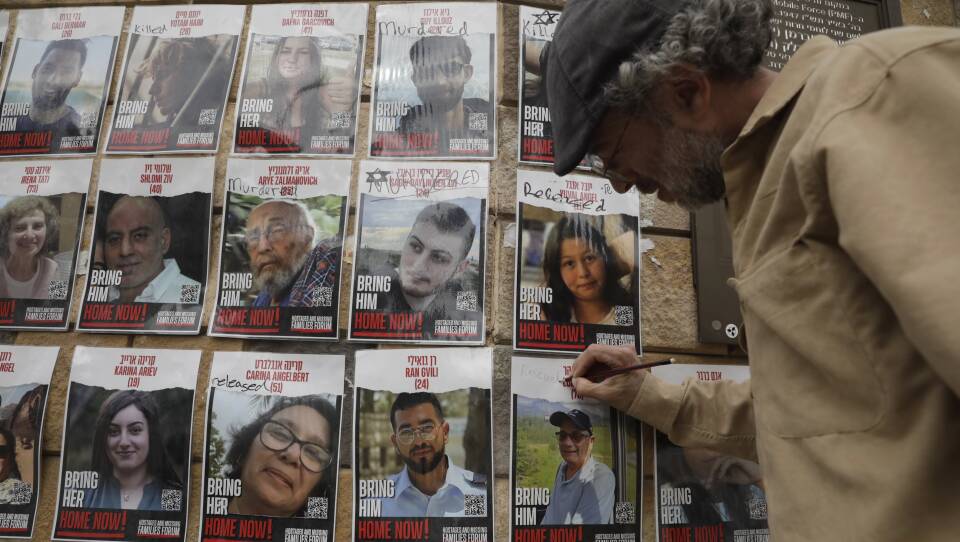It's been six months since the Oct. 7 Hamas attacks in which the group killed more than 1,100 people in Israel and abducted more than 250 others. Hamas is still holding 134 people hostage, the IDF told Newsweek. The war that Israel launched in response to the Hamas attacks has now killed over 33,000 Palestinians, according to Al Jazeera.
The Israeli-Palestinian conflict goes back decades, but journalist Marco Werman says this time is different.
Werman is cohost of The World, a radio show produced by PRX and GBH that covers global news. Currently, he's reporting from Israel. Werman was also there in 1998 before the Second Intifada, the Palestinian uprising against Israel that took place between 2000 and 2005.
"You felt the tension then. But this is ... different. And everybody you talk to will tell you this was the worst calamity in Israeli history," he said in an interview Monday with Boston Public Radio. "At the same time ... people are sitting on the waterfront, there are sailboats out at sea. I saw surfers. It's a really surreal kind of mix of different realities."
However, the hostages remain top of mind for many Israelis, even more so than "destroying Hamas completely," Werman said.
"This hostage issue is so front and paramount for so many Israelis that that's the only thing they want answered," he said. "The second we landed at the airport, there were hostage photos ... next to the moving sidewalk as you go down to collect your bags."
And those photos aren't just at the airport, he added. They're also on highway billboards and signified through yellow ribbons on people's cars. All throughout the country, there are "faces of the hostages constantly wherever you look," Werman said.
"It's the thing that is completely monopolizing everybody's minds right now," he said. "They know there's a war over in Gaza. They know that there's hunger. I'm not sure they really want to hear about it. Not right now."
In Gaza, the situation is dire for many, with Oxfam reporting last week that people in Northern Gaza are forced to survive on 245 calories a day, less than 12% of what is needed daily. Some polling shows that despite this, many Israelis are against humanitarian aid to Gaza, which Werman attributes to the belief that it will benefit Hamas.
Still, some humanitarian aid trucks have gotten into Gaza, he said, but many people are still hurting. Werman conducted an interview, which will be released this afternoon, with a Palestinian woman named Noor, who is currently struggling to feed herself and her family.
"Her kids are hungry. I mean, she had to leave her home in Gaza City. She's now parked in Rafah with her two kids, her husband," he said. "They could afford food if it was at regular prices, but it's out of reach for them right now."
Israel's war in Gaza has dealt a major blow to the Palestinian economy, according to a February World Bank report. Gaza's GDP has dropped by over 80% in the fourth quarter.
"It's been just economically devastating for Palestinians to cross from the West Bank to Israel on a daily basis, for commuting to jobs," Werman said. "It hasn't happened for the past six months, and that's led to massive unemployment."
So far, Israel has canceled work permits for 170,000 people, according to the report.




